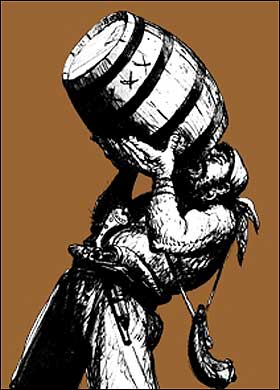Most people have extremely weird ideas of what’s considered piracy and what isn’t. Downloading a video game rom is piracy, but if you pay money to some Chinese retailer for an SD card containing the roms, that’s somehow not piracy. Exploiting the free trial on a streaming site by using prepaid visa cards is somehow not piracy either. Torrenting an album is piracy, but listening to a bootleg on YouTube isn’t.
YouTube noticed this at some point and is now happy to let everyone know how much pirated music is available on their site. One of their main points for shilling YouTube premium is how their music catalogue is way better than Spotify. Of course the piracy site has more. That’s always how it works. Spotify actually has to license the music on their platform and is subject to copyright law. They can’t just get the Neil Young discography from soulseek one day and wait until his estate notices, facing no repercussions whatsoever aside from agreeing to a takedown request. Imagine if Pirate Bay or Napster were considered completely above-board businesses just because they took down torrents if explicitly requested by the copyright holders.
Not that I’m complaining especially when a lot of the music on youtube isn’t publicly accessible anywhere else. It’s just been extremely strange to see this go from an “open secret” to something they’re shouting from the rooftops and face no repercussions for. In the future I want everything to be like that and I’d rather keep youtube how it is than see them get the punishment that by all rights they should be getting. It’s just so strange that this is the position things have ended up in.
Note: The following text is intentional abuse of the tagginator bot. Fuck you.
#ADHD #BOSTON #NYC #OpenSource #FOSS #SelfHosted #Soccer #3dprinting #Memes #GodotEngine #Unity #UnrealEngine
You’re missing some key facts:
- A lot of music on YouTube is fully licensed and uploaded by the owners or Google themselves. Like VEVO music, for instance.
- Google runs a content match algorithm on all uploads to detect music and movies. If you upload more than four seconds of a song, Google will detect it and transfer all monitization of that upload to the rights holder. This is why music documentaries like Trash Theory only have frustratingly short clips of the music they are talking about, and why channels like Techmoan, which documents weird music formats and playback devices, can also only share extremely short clips.
The rights holders are getting any and all money on music uploaded to YouTube, and your entire premise is flawed.
Do they still do takedowns for videos based on that content IDing if the video isn’t even monetized in the first place?
Like, I know youtubers who try to make money hate this, but what about youtubers who aren’t in it for the money but just want to throw content on the platform? Can stuff like AMVs actually stay up?
Because, frankly, I’ve found that it’s been pretty easy to dodge YouTube ads, by means of uBlock Origin.
They don’t take it down often. But non-monetized videos will get set as monetized, ads will be added, and the profits go to the Copyright holder.
His logic chain may have been flawed for his argument, but his premise is not wrong. YouTube providing a distribution platform for any type of music video means that content holders are putting music on there and suffering the same rules as anyone else. To the best of my knowledge, Google does not pay any additional license fees to content owners should they elect to upload a music video to the platform. The owner makes ad revenue just like all other creators. This effectively circumvents the costly licensing agreements that the likes of Spotify and Pandora have to enter into.
No idea if you have ever uploaded to youtube but I can’t upload audio of my dick slapping my ankle without Disney or universal claiming royalties.
Wtf is the tagginator bot?
Aren’t most songs on YouTube uploaded by the artists themselves?
I mean… It’s been like that through all humanity history, if big guy says black is white, then black is white it is, remember school if you want to examples of that, also another examples can be found in politics of all countries throughout history
A lot of technologies started out as pirate technologies.
Cable TV? The first people who started shoving TV over cables into people’s homes didn’t ask for permission. But now that’s such a normal thing that we can’t imagine it having been infringement at one point.
Player piano rolls too. No permission was sought and its legality wasn’t figured out until they got sued. (And the courts decided that a royalty to the composers or rights holders was in order, and the courts set the going royalties rate in cents per roll, but they also decided the composers/rights holders couldn’t deny any player piano roll maker the right to make player piano rolls of their songs.)
But then things shifted and now the courts are owned by Disney.
Hell, Crunchyroll was a pirate site until it converted into not being one.
As long as they get to profit from it and not you, then it’s not piracy for them. If a record label wanted to sue Google, they would have a hell of a time.
What I don’t understand is that any Joe schmo can upload to YouTube a licensed copyrighted song from another artist and post the lyrics with it and call it karaoke, and they get no copyright strikes whatsoever,
while one time I had a Phil Collins song playing in the background while bantering with my daughter, immediately after uploading it to YouTube they flagged & removed it for copyright infringement.
Why did the karaoke Joe schmo get away with it but I can’t even accidentally have a song playing in the background while I’m bantering with my daughter?
Dude fucking same. I uploaded a 5 minute clip of my buds and I at a league of legends tournament we were participating at and it got striked because someone was playing a shitty song in the background for 30 seconds while we talked over it. Some minor who’s who artist. It was low quality audio too, they must have an amazing system to be able to pick it out from all the rest of the noise.
Perhaps it’s being presented as fair use? Education via the documentation of the lyrics?
It’s a bit of a stretch, but that’s all I’ve got.
lol good points and so true. reading this just makes me think of the old quote If the penalty for a crime is a fine, that law only exists for the lower classes. When I think of record labels and big film companies, let’s just say that the first thing that comes to mind isn’t starving artists but coastal elitists getting pissy bc they can’t charge people even more.






